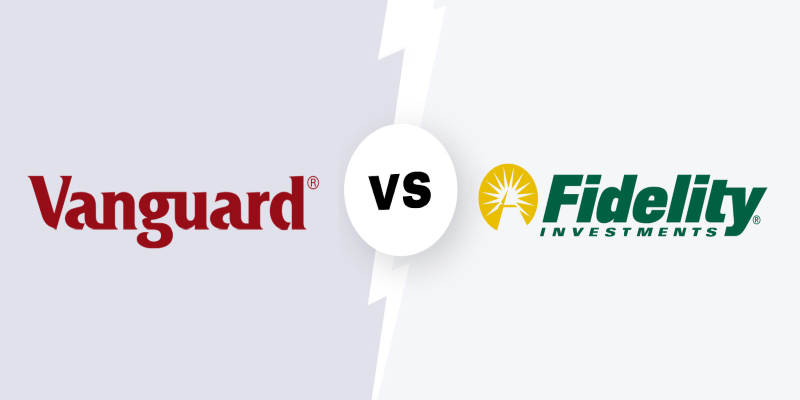4 Investments to Help You Reduce Taxes and Maximize Returns
Taxes make money seem inevitable, but they don't have to strip the capital out of your financial growth. There are ways you can legally minimize taxes and keep more hard-earned money through certain investment strategies. Whether you plan for retirement, help manage an inheritance, or try to maximize returns, tax-efficient investments really do make a difference. In this article, we’ll explore four of the best options for reducing your tax liabilities while building your financial future. These strategies are not just about cutting taxes—they’re about smart planning and securing lasting wealth.

Tax-Advantaged Retirement Accounts: A Long-Term Solution
Retirement accounts such as 401(k)s, IRAs, and Roth IRAs also form a foundation for tax-efficient investing. These accounts are essentially developed to encourage long-term saving by providing tremendous tax benefits. Contributions to traditional 401(k)s and IRAs are usually tax-deductible; that is, you reduce your taxable income for the present year. The funds in these accounts grow tax-deferred, letting your investments compound faster over time.
On the other hand, Roth IRAs flip that script: though you must invest aftertax dollars, the withdrawals in retirement, including earnings, are tax-free. That is why it's an excellent choice if you foresee being in a higher tax bracket when you retire. Ultimately, whether you choose one of these accounts will depend on your situation now. Where you'll be in the future with your project, but both of these options are highly valuable for long-term tax minimization.
Besides that, employer-sponsored plans, such as 401(k) plans, are usually matched by the employers. That is essentially free money. Tying tax benefits with employer perks gives you a dual advantage: helping you grow wealth faster and more efficiently.
Municipal Bonds: Tax-Free Income with Low Risk

For those seeking a steady income stream while minimizing taxes, municipal bonds are a reliable choice. Issued by state and local governments, these bonds come with the unique benefit of tax-free interest income at the federal level. In many cases, the interest may also be exempt from state and local taxes, particularly if you invest in bonds issued in your state of residence.
Municipal bonds are particularly appealing to investors in higher tax brackets, as they offer a tax-efficient way to generate income without being subject to the typical taxation on dividends or interest. Beyond their tax advantages, these bonds are considered low-risk investments, making them a safer alternative for conservative portfolios.
It’s worth noting that not all municipal bonds are created equal. General obligation bonds rely on the overall credit and taxing power of the issuing government, whereas revenue bonds are supported by income generated from specific projects, such as toll roads or airports. Understanding the types and evaluating their credit ratings ensures that you choose the best fit for your financial goals.
Health Savings Accounts (HSAs): Triple Tax Benefits

If you’re eligible for a Health Savings Account (HSA), it’s one of the most tax-efficient tools available. Health Savings Accounts (HSAs) are linked to high-deductible health plans and provide a distinct set of tax advantages: contributions are tax-deductible, earnings grow tax-free, and withdrawals used for eligible medical expenses are tax-exempt.
Unlike flexible spending accounts (FSAs), HSAs allow you to roll over unused funds year after year, creating an opportunity for long-term tax savings and investment growth. Some savvy investors treat their HSAs as an additional retirement account by saving receipts for future medical expenses while allowing their funds to grow tax-free over decades.
What makes HSAs particularly attractive is their flexibility. After turning 65, you can withdraw funds for any reason without facing penalties; however, non-medical withdrawals will be subject to taxation as regular income. This feature gives you another layer of financial security while minimizing your tax burden during your working years and retirement.
Another compelling aspect of HSAs is the ability to invest the funds in mutual funds or ETFs, allowing for significant growth over time. Many HSA providers offer investment options that mirror traditional brokerage accounts, enabling you to potentially earn higher returns compared to leaving the money in a standard savings account.
Index Funds and ETFs: A Tax-Efficient Way to Invest in the Market
For investors focused on growing their wealth in taxable brokerage accounts, index funds and exchange-traded funds (ETFs) are among the most tax-efficient options. These investment vehicles track market indexes, such as the S&P 500, and offer lower turnover compared to actively managed funds. Lower turnover means fewer taxable events, such as capital gains distributions, which helps reduce your annual tax liabilities.
ETFs, in particular, have a unique structure that allows them to minimize capital gains taxes through in-kind redemptions. This means you’re less likely to face unexpected tax bills, even if you frequently buy and sell shares.
Another advantage of index funds and ETFs is their cost efficiency. Low expense ratios mean more of your money stays invested, further boosting your long-term returns. When paired with strategies like tax-loss harvesting—where you sell losing investments to offset gains—these funds become even more powerful tools for minimizing taxes.
Additionally, index funds and ETFs provide excellent diversification, spreading your investment across a wide array of companies or sectors within a single fund. This diversification not only helps in managing risk but also simplifies portfolio management, making these options particularly attractive for investors seeking a hands-off approach. Coupled with their tax efficiency and cost-effectiveness, index funds and ETFs are well-suited for both novice and seasoned investors aiming to build wealth steadily while keeping tax burdens low.
Conclusion
Reducing your tax burden isn’t just about saving money in the short term; it’s about creating a sustainable plan for long-term financial success. From retirement accounts and municipal bonds to HSAs and market investments like ETFs, there are numerous strategies to minimize taxes while growing your wealth. Each option offers unique benefits tailored to different financial goals and risk appetites. The key is understanding your current tax situation, future income projections, and investment objectives. With careful planning, you can maximize your savings, keep more of your earnings, and achieve greater financial security.










